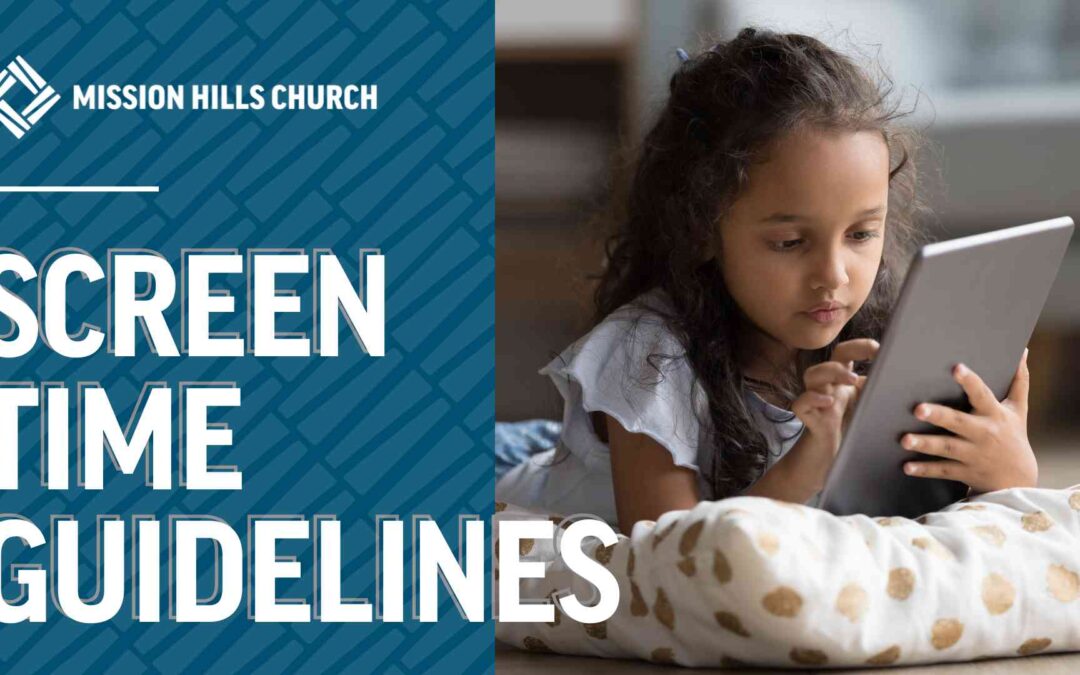Do you ever feel like you’re constantly battling screens in your home? You’re not alone.
Many parents, myself included, struggle to find the sweet spot between allowing their kids to enjoy the benefits of technology and protecting them from its potential pitfalls. As Christians, we’re called to steward our children’s hearts and minds, including how we manage screen time and technology.
Moderation and Balance
From the early years, we’ve emphasized the importance of moderation—not just with screens but with everything from candy to toys. Instead of demonizing the idea of watching TV or playing a video game, we want to help them learn to self-regulate over time.
When they were younger, we set clear limits—no more than an hour a day of screen time. As they grew older, we engaged them in conversations about what they thought was reasonable. From a pretty young age, we were impressed with their ability to make wise choices. Now, in middle school, they appreciate our balanced approach, even if they don’t always like the limits.
The Importance of Screen-Free Zones
One of our most effective strategies is creating screen-free zones in our home, like the dinner table and backyard. This encourages family time and helps our kids develop healthy habits and improve their social skills.
We put conversation cards on our dinner table for when our conversations get rote, and our garage is packed with cardboard boxes. While legos and forts are much more work to clean up, we’ve been grateful for how those games spark creativity.
Interactive + Educational Content
Not all screen time is created equal. Interactive and educational content can actually be beneficial. Our kids have learned to crochet from a YouTube video, built complex villages in Minecraft, and connected with grandparents who live out of state.
These activities foster creativity and teach them valuable skills that will serve them in school and beyond.
Avoiding the Risks of Excessive + Inappropriate Screen Time
The dangers of too much screen time are real. Studies have linked excessive screen time to obesity and sleep problems. The rise of social media has spiked adolescent anxiety. And the internet is full of content that can scar little minds for years.
Lions and tigers and bears, oh my.
Like most parents, we don’t have time to be a dedicated IT department, but here are a few ways we’ve mitigated these risks for our family. We use parental controls, keep screens out of bedrooms, and we are mindful of introducing age-appropriate technology.
Our kids had no dedicated tech (including iPads) for most of their childhood. We purchased Gizmo watches after 4th grade to allow for some limited communication, and we’re hoping to wait until 8th grade to allow cell phones. We aim to wait until late in high school to allow social media (wish us luck!).
Most significantly, we talk openly about how what we watch impacts our hearts and minds. We tell our kids that we are giving them an opportunity to have integrity with their choices regarding screens and media.
No surprise—our kids aren’t perfect. So, when they make poor choices (like when we find them playing Minecraft in their room or find YouTube on their search history instead of their homework!), we are consistent with our consequences.
Spiritual Guidance + Role Modeling
As Christians, we also know that our biggest spiritual impact is what our kids see us doing—not what they hear us saying. We strive to model healthy screentime habits and help them learn to navigate the world of technology.
When the kids were little, we loved to explore the Bible App for Kids and let the kids practice reading on Epic. Sometimes, we’ll have pizza on Fridays and watch a family movie. As they’ve grown, we will watch funny videos on YouTube or even TikTok together, and we have open conversations about them.
Transitioning to Healthier Screen Habits
If you’re looking to gradually reduce your child’s screen time, start by setting smaller goals, such as reducing screen time by 10 minutes each day.
Replace that time with engaging activities like outdoor play, reading, or family board games.
Every Family is Unique
I used to be judgmental of kids who spent hours gaming instead of playing outside. Until my husband reminded me that many of these gamers grow up to be well-paid, well-adjusted engineers!
Every kid and family is unique, and it’s important to tailor screen time guidelines to fit your child’s needs and your family’s values.
Managing screen time is about more than strict rules or completely cutting off technology.
It’s about finding balance, setting limits, and ensuring that screen time supports your child’s development.
By applying Biblical truths, modeling healthy behavior, and incorporating educational and spiritual content, you can create a screen time plan that works for your family.
Related Video
AUTHOR CREDITS
Kelly McSparran
Communications Director
GRAPHIC CREDITS
Maddie Brouwer
Communications Coordinator





